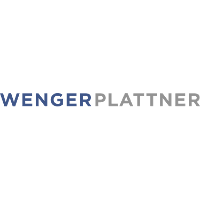Preclinical and Clinical Trial Requirements
Wenger Plattner / Switzerland
Key legal info on preclinical and clinical trial requirements in Swiss Pharma. Prepared in association with Wenger Plattner, a leading law firm in Switzerland, this is an extract from The Pharma Legal Handbook: Switzerland, available to purchase here for GBP 99.
1. Are clinical trials required to be conducted locally as a condition (stated or implicit) for marketing approval?
No, clinical trials do not have to be conducted locally as a condition for marketing approval.
2. How are clinical trials funded?
Clinical trials are funded by a sponsor. Sponsor means a person or institution headquartered or represented in Switzerland that takes responsibility for organising a clinical trial, and in particular for the initiation, management and financing of the trial in Switzerland (art. 2 lit. c Clinical Trials Ordinance [hereinafter: ClinO; Verordnung über klinische Versuche in der Humanforschung vom 20. September 2013, KlinV; SR 810.305]). The responsible ethics committee shall review the financing of the clinical trial and the agreements between the sponsor, third parties and the investigator concerning the allocation of tasks, remuneration and publication (art. 25 lit. i ClinO). Other organizations may also support a clinical trial financially. All sources have to be disclosed to the responsible ethics committee which has to approve the financing.
3. What are the requirements for preclinical and clinical trial protocols? Who must approve the protocols?
The ClinO differs between several categories of trials which are subject to different requirements. The application documents to be submitted to the responsible ethics committee for the procedure for clinical trials are listed in Annex 3 of the ClinO. The Swiss Ethics Committees offer on their website useful templates for all documents including protocols. Study protocols must include, for example, a declaration of interest, rules concerning the storage of biological material and health related data etc. (cf. https://swissethics.ch/en/templates [last visited on 31 March 2021]). Protocols must be approved by the responsible ethics committee.
4. What are the requirements for consent by participants in clinical trials?
Art. 16 Human Research Act (hereinafter: HRA; Bundesgesetz über die Forschung am Menschen vom 30. September 2011; Humanforschungsgesetz, HFG; SR 810.30) regulates the conditions for the so-called “Informed Consent”: Persons may only be involved in a research project if they have given their informed consent. Consent must be given in writing; the Federal Council may specify exemptions (para. 1).
The persons concerned must receive comprehensible oral and written information on: a) the nature, purpose and duration of, and procedure for, the research project; b) the foreseeable risks and burdens; c) the expected benefits of the research project, in particular for themselves or for other people; d) the measures taken to protect the personal data collected; e) their rights (para. 2).
Before a decision on consent is made by the persons concerned, they must be allowed an appropriate period for reflection (para. 3).
The Federal Council may specify further elements of the information to be provided (para. 4). These additional provisions are set out in the ClinO.
In addition to art. 16, there are two other provisions in the HRA: The first deals with consent to further use for research (art. 17) and the second with incomplete information (art. 18). These provisions are not further specified here.
The responsible ethics committee verifies the patient informed consent as part of the authorization procedure, in one of the official languages German, French or Italian. The sponsor or the project lead is responsible for the accurate translation.
The Swiss Ethics Committees offer on their website useful templates for patient informed consent, cf. https://swissethics.ch/en/templates (last visited on 31 March 2021).
5. May participants in clinical trials be compensated?
Art. 14 HRA regulates the non-remunerative participation and distinguishes between two types of research projects (para. 1): No person may receive payment or any other non-cash advantage for participation in a research project with an expected direct benefit. This means a research project whose results can be expected to improve the health of the participants (art. 3 lit. d HRA). On the other hand, participation in a research project with no expected direct benefit may be appropriately remunerated.
The law does not further specify what “appropriately remunerated” means. However, the responsible ethics committee shall review the protocol with regard to the appropriateness of the remuneration for participants (art. 25 lit. d sec. 7 ClinO).
Furthermore, no person may demand or accept payment or any other non-cash advantage from another in return for the latter’s participation in a research project (para. 2).
6. How are participants in clinical trials protected and indemnified against any harm that arises as a result of participation in the trial?
The HRA contains special provisions for liability and coverage. Art. 19 regulates the liability: Any person who carries out a research project involving persons shall be liable for damage suffered by them in connection with the project. The Federal Council may specify exemptions from liability (para. 1). Compensation claims become time-barred three years after the injured party has become aware of the damage and of the liable party, but no later than ten years after the completion of the research project. The Federal Council may specify a longer limitation period for particular research areas (para. 2). The provisions of the Code of Obligations on tort are otherwise applicable; in the exercise of official duties, the Government Liability Act, or cantonal government liability law, is applicable (para. 3).
According to art. 20, which regulates the coverage, liability must be appropriately covered through insurance or in some other manner. The Federal Government and its public-law institutions and corporations are exempt from the liability coverage requirements (para. 1). The Federal Council may specify further elements (para. 2 and 3).





























































